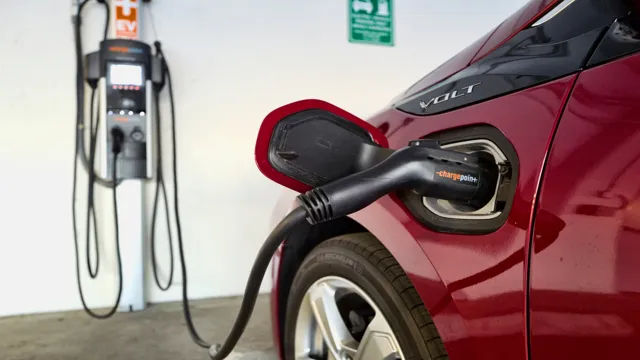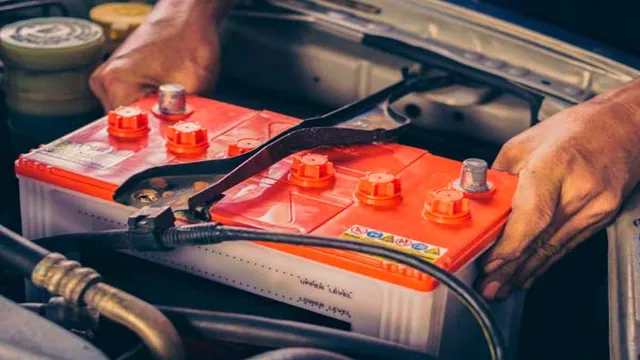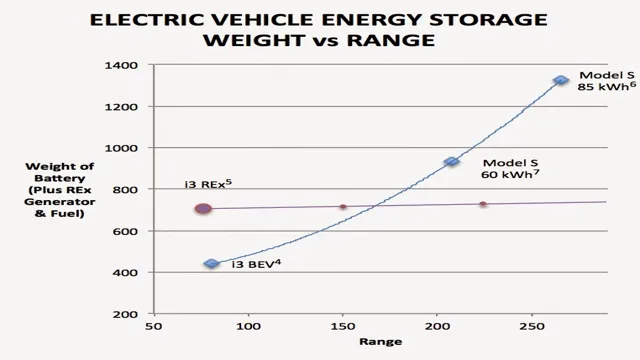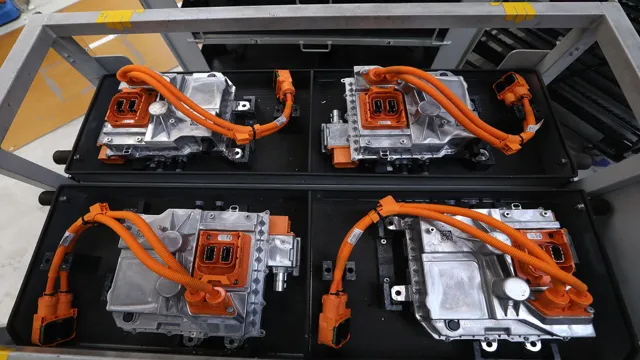Surviving the Heat: Tips to Prolong Your Electric Car Battery Life in Hot Weather
Hot weather can be tough on electric car batteries. With the summer season upon us, it’s an issue that leaves car owners wondering if their electric car battery will hold up during the hottest days of the year. Many of us are familiar with how hot weather can impact our regular car batteries, but what about electric car batteries? After all, electric car batteries consist of a complex array of cells and modules that generate current to power the car’s motor.
Heat can cause these cells to degrade or even short-circuit, reducing the battery’s overall capacity and lifespan. And given that electric cars are powered solely by their batteries, an overheated or damaged battery can halt the car’s performance. So, what are some of the best ways to keep your electric car battery healthy in hot weather, and how can you avoid any unwanted surprises while on the road? Exploring the ins and outs of electric car batteries and hot weather can help provide insight into the steps you can take to ensure your electric car is ready for the summer season.
The Impact of Heat on Electric Car Batteries
Electric car batteries are sensitive to temperature changes, particularly hot weather, which can significantly affect their performance and overall lifespan. When batteries are exposed to high temperatures, they tend to degrade faster, leading to reduced capacity and shorter range. This is because the high temperature can cause the battery’s chemicals to break down, thereby reducing the amount of energy that the battery can hold.
Additionally, high temperatures can cause the battery to become unstable, which increases the risk of overheating and even fire. To avoid these potential risks, electric car owners should avoid exposing their vehicles to extreme heat for extended periods, especially when they are parked. They may also consider investing in special cooling systems or parking underground to keep their battery at optimal temperature levels.
In short, electric car owners need to be aware of the impact of hot weather on their vehicle’s battery, and take proactive measures to protect it from damage.
How Hot Weather Affects EV Batteries
Electric car batteries are highly susceptible to hot weather, and the impact can be significant. The high temperature increases the internal resistance of the battery, and this results in reduced efficiency and decreased range. Batteries can also get damaged if their temperature goes beyond the recommended limit.
To prevent overheating, electric cars are equipped with a thermal management system that helps regulate the temperature of the battery. This system keeps the battery cool by using a mix of air and liquid cooling. Despite this, it’s still essential to be cautious when charging an EV during hot weather as charging generates heat, which can accelerate the battery’s temperature.
It’s worth noting that the extent to which hot weather affects EV batteries varies based on different factors such as the car model, battery type, and weather conditions. However, the best way to maintain the battery’s longevity is by keeping it in a cool and dry place, avoiding extreme temperatures, and following all the car manufacturer’s recommended guidelines.

Factors That Influence the Rate of Battery Degradation
Heat is an important factor that can have a significant impact on the rate of degradation of electric car batteries. Battery cells are sensitive to high temperatures, which can cause damage to the chemical composition of the cells, resulting in a reduced capacity and a shorter lifespan. This is why it is important to avoid exposing electric car batteries to extreme heat, such as leaving them in direct sunlight or parking them in hot environments.
Moreover, charging the battery in high temperatures can also increase the rate of degradation, while colder temperatures can slow down the chemical reactions in the cells. Therefore, it is recommended to park electric cars in well-ventilated areas and avoid exposing them to extreme temperatures, to ensure that the battery lasts as long as possible.
Tips for Maximizing EV Battery Life in Hot Weather
If you live in a hot climate or are planning a summer road trip, it’s important to know how to protect your electric car battery in high temperatures. Extreme heat can diminish your EV’s battery life and decrease its range, but there are a few tips you can follow to minimize the damage. One of the easiest ways to protect your battery is to avoid leaving your car parked in direct sunlight for extended periods of time.
Instead, try to park in shady areas or use a car cover to protect the vehicle from the sun’s rays. Additionally, it’s important to keep your car’s cooling system in good condition, as it can help regulate the battery’s temperature. Make sure to follow your car manufacturer’s recommendations for maintenance and check your coolant levels regularly.
Finally, try to avoid rapid charging or discharging your battery in extreme heat, as it can accelerate the degradation of the battery’s cells. By following these simple tips, you can help maximize your electric car battery’s lifespan and keep it running at peak performance in hot weather.
Keeping Your Car in the Shade
If you’re an EV owner, you’re probably aware of the impact of high temperatures on your car’s battery. Heat can cause damage to the chemical composition of lithium-ion batteries, which can negatively affect their lifespan and overall performance. But there are some steps you can take to minimize the impact of hot weather on your EV battery.
One of the easiest things you can do is to park your car in the shade. Direct sunlight increases the temperature of your vehicle’s cabin and battery, so finding shelter under a tree or parking in an underground garage can go a long way in keeping your car cool. Additionally, you could consider installing a sunshade on your windshield to further reduce the interior temperature.
These simple tricks can extend your EV battery’s life, save you money, and reduce your carbon footprint.
Avoiding Quick Charging When Possible
If you’re an EV owner in a hot climate, you already know how important it is to keep your vehicle’s battery cool. But did you know that avoiding quick charging whenever possible is another way to maximize your battery’s lifespan? Rapid charging generates more heat, which can cause damage over time. Instead, try to establish a charging routine that focuses on slow and steady charging.
This will not only reduce heat stress on your battery but also help maintain optimal charging capacity. Don’t forget to keep an eye on your battery’s temperature gauge during hot weather, as it can fluctuate quickly and affect performance. By taking these simple steps, you can make sure your EV battery stays strong and reliable for many years to come.
Limiting the Use of Air Conditioning
When it comes to maximizing the battery life of your electric vehicle in hot weather, minimizing the use of air conditioning can make a big difference. While it may be tempting to crank up the AC during a heatwave, doing so can drain your EV’s battery much faster than normal. Instead, try keeping the windows down and using a sunshade to keep the inside of your car cool.
Parking your EV in a shaded area or garage can also help prevent the cabin from overheating. Another tip to consider is preconditioning your vehicle before you start driving. This allows you to cool down the cabin while the battery is still connected to the charging station, so you’re not wasting battery power while on the road.
By implementing these simple tips, you can help extend the life of your electric vehicle’s battery during hot weather conditions.
The Future of EV Battery Technology in Hot Climates
Electric car battery performance has always been a concern in hot climates. As temperatures rise, the battery can suffer reduced efficiency, shortened lifespan, and even permanent damage. However, advancements in EV battery technology are promising to address these issues.
One approach being explored is the use of solid-state batteries, which have higher energy density and improved safety over traditional lithium-ion batteries. Additionally, manufacturers are implementing better battery management systems to regulate temperature and optimize performance. Another solution is to use thermal conditioning, which involves circulating coolant around the battery to maintain an optimal temperature.
As these technologies continue to evolve, electric vehicles will become more viable in hot climates, and users can enjoy the benefits of a greener and more sustainable form of transportation.
Advancements in Thermal Management Systems
As electric vehicles (EVs) continue to gain popularity, the demand for EV battery technology that can withstand high temperatures is on the rise. Hot climates can negatively affect battery performance, reducing range and overall lifespan. To combat this, advancements in thermal management systems are being developed.
These systems work by regulating the temperature of the battery pack, ensuring it remains within optimal ranges. This is achieved through the use of advanced cooling technologies, such as liquid cooling, and by integrating sensors that monitor the battery’s temperature and adjust the cooling system accordingly. With these advancements, EV batteries can be used in even the hottest climates without sacrificing performance.
It’s an exciting time for EV technology, as these developments will enable more people to transition to sustainable transportation options.
Improvements in Battery Chemistry
The future of EV battery technology looks promising, especially in hot climates where extreme temperatures can drain battery life. Improvements in battery chemistry are being made to address this issue. One such improvement involves utilizing solid-state batteries that have a higher energy density and are less likely to overheat.
This new battery chemistry also enables faster charging times and longer battery life. Another improvement is the use of lithium-sulfur batteries that have a higher energy density than traditional lithium-ion batteries. These advancements in battery technology will help improve the performance and efficiency of electric vehicles, making them more viable options for drivers in hot climates.
So, if you’re considering switching to an EV but are concerned about hot weather, rest assured that the future of battery technology is looking bright.
Conclusion: Ensuring Your EV Battery Performs Well in Hot Weather
When it comes to electric car batteries in hot weather, it’s important to remember that even the most advanced technology can have its limitations. While excessive heat can certainly pose a challenge for optimal performance, there are steps that can be taken to mitigate the effects. Whether it’s seeking out shade, keeping your battery charged, or simply being mindful of temperature fluctuations, the key is to stay informed and proactive.
After all, just like your favorite summer beverage, it’s all about finding the right balance to keep things running smooth and cool.”
FAQs
How does hot weather impact the lifespan of an electric car battery?
Hot weather can negatively affect the lifespan of an electric car battery. High temperatures can cause the battery to degrade faster and lose its charge capacity more quickly.
How can I protect my electric car battery in hot weather?
To protect your electric car battery in hot weather, park in shady areas when possible and try to avoid letting the car sit in direct sunlight. You can also use a battery cooling system, which can help regulate the temperature inside the battery pack.
Can extreme temperatures cause my electric car battery to fail?
Yes, extreme temperatures, both hot and cold, can cause an electric car battery to fail. In very high temperatures, the battery can overheat and cause damage. Extremely low temperatures can also reduce the battery’s performance and lifespan.
Are there any special maintenance requirements for electric car batteries in hot weather?
There are no specific maintenance requirements for electric car batteries in hot weather, but you should always follow the manufacturer’s recommendations for battery care and maintenance. This may include checking the battery’s state of charge and avoiding overcharging or discharging the battery.





